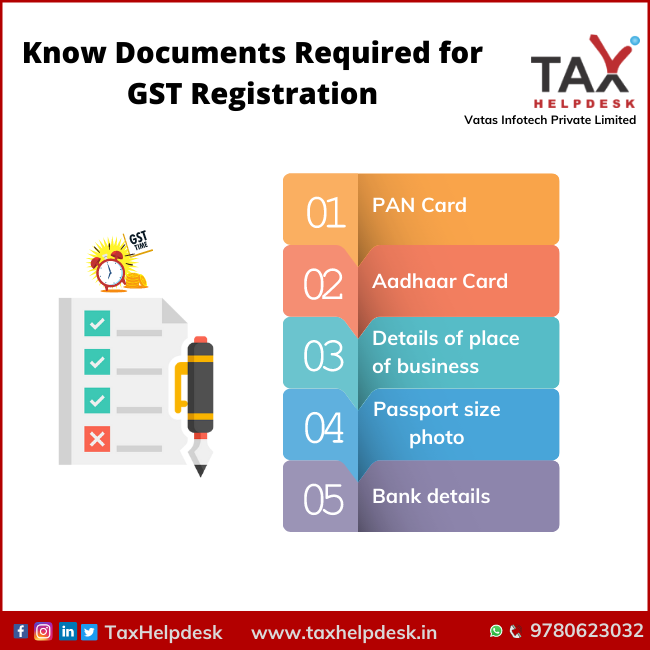The Ultimate Overview to Streamlining the GST Registration Process and Demands for Local Business Owners

Recognizing GST Essentials
To realize the principles of the Item and Provider Tax (GST) system, local business owners need to initially comprehend its underlying concepts and effects. GST is a value-added tax obligation imposed on a lot of products and solutions for domestic consumption. It intends to simplify the tax process by replacing several indirect tax obligations imposed by the state and main governments. Under the GST program, organizations are called for to collect and register tax in behalf of the government, making sure transparency and compliance.
One of the essential concepts of GST is input tax obligation credit score, which allows companies to declare credit for taxes paid on their purchases. Comprehending these fundamental concepts is crucial for small service proprietors to browse the intricacies of the GST system and ensure compliance with the law.
Eligibility Requirements for Registration
Having developed a foundational understanding of GST concepts, small organization owners should currently meet certain qualification criteria to proceed with the registration procedure (Singapore GST Registration). Businesses that were registered under the previous tax obligation regimen (BARREL, solution tax, and so on) are also mandated to register under GST. Agricultural organizations that only provide generate out of primary manufacturing are exempt from GST registration.
Papers Needed for GST Enrollment

Simplified Enrollment Process Actions
Complying with the collection and verification of the requisite files, the enrollment procedure for GST can be navigated via a collection of simplified steps developed to promote reliable conformity for little organization owners. The primary step Go Here entails visiting the GST portal and selecting the 'New Registration' option. Ultimately, the candidate must fill out Component A of the GST REG-01 kind with details such as PAN, mobile number, and email address to get an OTP for verification. Once the OTP is gotten and entered, a Short-term Reference Number (TRN) is produced for further procedures. The following action needs submitting Part B of the kind with needed service information, publishing supporting papers, and completing the verification procedure using DSC or EVC. Ultimately, upon effective verification, an Application Reference Number (ARN) is issued, indicating the conclusion of the GST registration process. By adhering to these streamlined actions, local business proprietors can effectively sign up for GST and ensure compliance with tax obligation guidelines.
Tips for Ensuring Compliance
To keep governing adherence and functional honesty, diligent oversight and proactive actions are pivotal in guaranteeing compliance with GST requirements for small company owners. Small business owners should stay updated with GST regulations, submitting target dates, and any type of modifications in tax rates to avoid penalties and keep an excellent standing with tax obligation authorities. Going to GST awareness workshops or training programs can enhance understanding and conformity with GST laws, eventually benefiting the company in the long run.
Verdict
To conclude, small company owners must recognize the fundamentals of GST, meet the eligibility standards, collect necessary records, and comply with the simplified enrollment procedure steps to ensure visit our website compliance. By streamlining the GST enrollment process and needs, little business owners can avoid charges and run their businesses smoothly within the legal framework - Singapore GST Registration. It is crucial for small company proprietors to stay compliant and informed with GST regulations to preserve a successful company operation
Small business proprietors looking for GST enrollment have to ensure they gather and submit the necessary files to finish the registration procedure effectively. The records needed for GST enrollment typically consist of evidence of service registration or consolidation, PAN (Irreversible Account Number) card of the company address, entity and identity proof of the promoters/partners/directors, pictures, address proof of the area of organization, bank account declarations or read review terminated cheques, and permission forms. Attending GST understanding workshops or training programs can enhance understanding and compliance with GST guidelines, eventually profiting the organization in the long run.
By streamlining the GST enrollment procedure and requirements, small company owners can stay clear of penalties and operate their companies smoothly within the legal structure. It is critical for small company proprietors to stay compliant and informed with GST policies to preserve a successful service procedure.